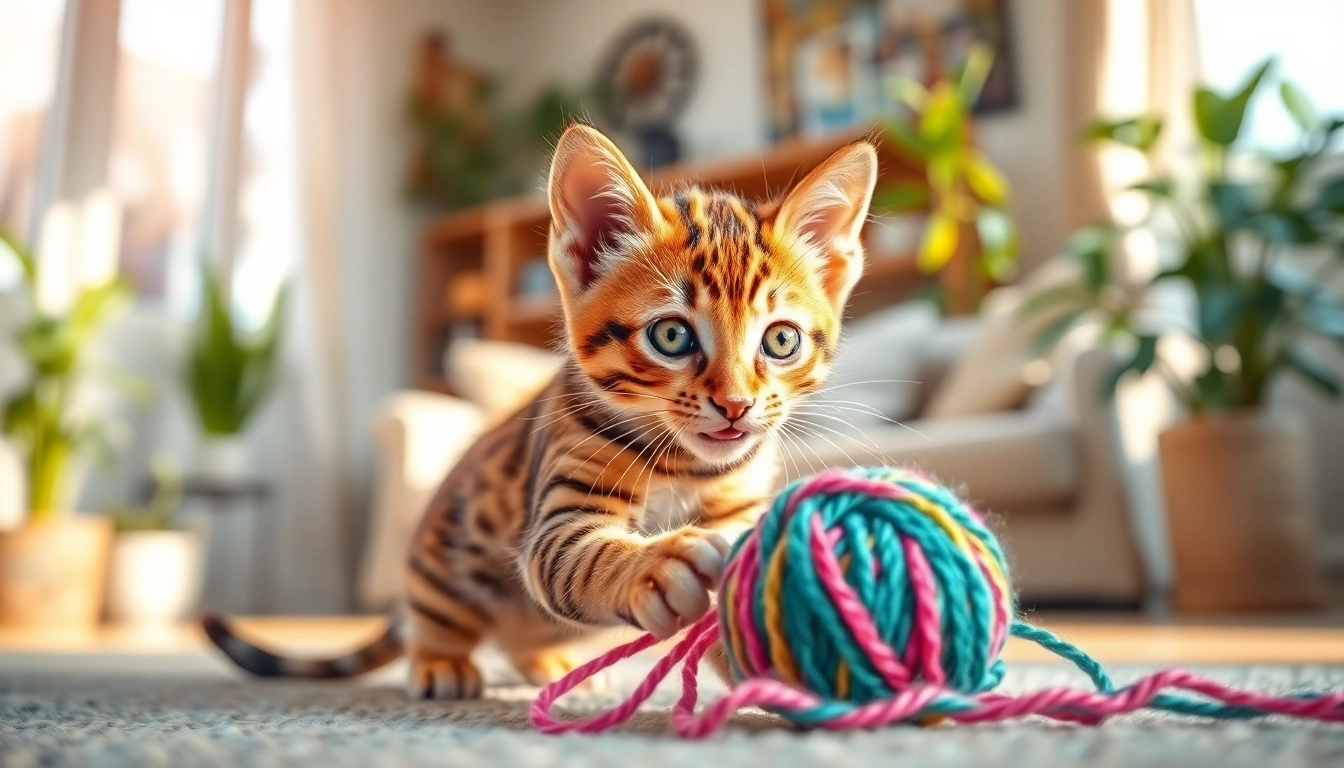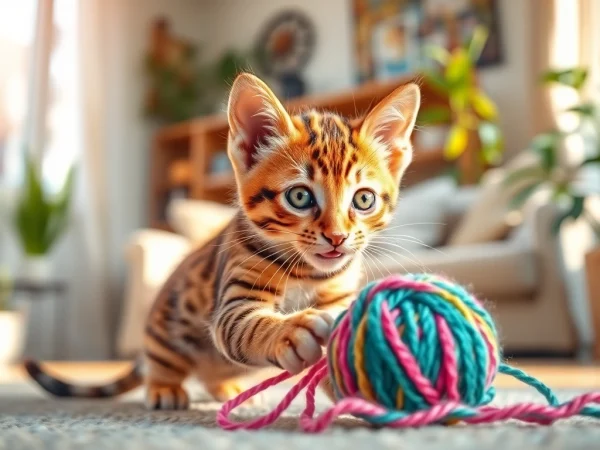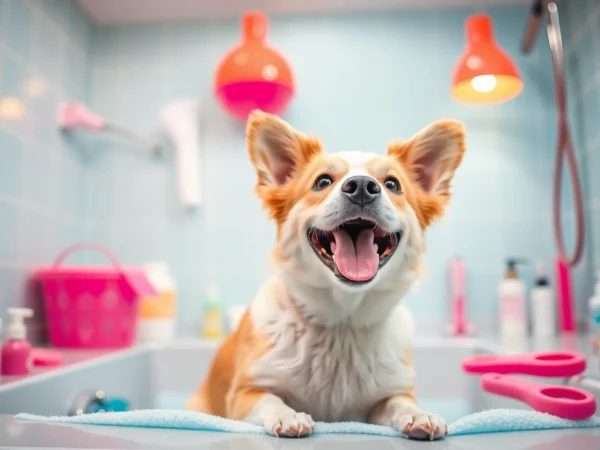Premium Bengal Breeders in Orange County: Finding Your Perfect Companion
Understanding the Bengal Breed and Its Characteristics
The Unique History of Bengals
The Bengal cat is a fascinating breed, primarily known for its unique spotted coat that resembles that of a wild leopard. But the history of Bengals is an intriguing tale of genetics and breeding. The breed originated in the 1960s when domestic cats were crossed with the Asian leopard cat (Prionailurus bengalensis). This crossbreeding was aimed at creating a domesticated cat that retained the exotic beauty of its wild ancestor while possessing a friendly temperament suitable for home life.
Over the years, many breeders sought to refine the breed, breeding Bengals back to domestic cats to instill desirable traits, such as sociability and affectionate behavior. As a result, Bengals started gaining popularity for their striking appearance and playful personality. Today, thanks to the careful selection and consideration of various factors like temperament and health, Bengals have become adored companions worldwide.
Physical Features That Stand Out
Bengal cats are characterized by their distinct physical features, which make them stand out amongst other breeds. One of the most defining traits is their coat, which features large spots and rosettes reminiscent of wild leopards. Their fur is thick and luxurious with a soft texture, also noted for its unique “glitter” effect — a sparkling quality that makes their coats shimmer in the light.
Additionally, Bengals have well-defined musculature and a strong, athletic build, showcasing their energetic personality. They typically have large, expressive eyes that can range in color from green to gold, contributing to their exotic appearance. Their ears are also notable; they are medium-sized and often have a rounded tip, further enhancing their striking looks.
Temperament and Behavior Insights
Bengal cats are known not just for their beauty but also for their dynamic temperament. They possess a lively and playful attitude, which often keeps their owners entertained. Bengals are highly intelligent, which can make them easy to train, but this intelligence also requires mental stimulation to prevent boredom.
This breed is known for being affectionate and can be very loyal to their families. They are social creatures that often enjoy the company of other pets and will engage in interactive play. However, they require supervision as they can sometimes display a mischievous streak due to their high energy levels. Understanding their behavioral patterns is crucial for a harmonious relationship with a Bengal cat.
Top Bengal Breeders in Orange County
What to Look For in a Reputable Breeder
When searching for Bengal breeders in Orange County, it’s essential to identify those that adhere to ethical breeding practices. A reputable breeder should provide a clean, safe, and nurturing environment for their cats and kittens. They should be knowledgeable about the breed and be willing to answer questions regarding temperament, health issues, and genetics.
Moreover, ensure that the breeder engages in responsible breeding practices, including proper health screenings for common genetic disorders. Look for TICA (The International Cat Association) registration, as this certification verifies that breeders adhere to high standards of care and ethics in their breeding practices. Additionally, a good breeder will often encourage visits to their cattery, allowing potential owners to meet the kittens’ parents and assess their environment.
Highlights of Leading Breeders in the Area
Orange County is home to several esteemed Bengal breeders known for producing high-quality kittens. For instance, Bengal Breeders Orange County emphasizes responsible breeding while maintaining superior standards in care and socialization of their kittens. Their focus is on health, temperament, and aesthetics, ensuring each Bengal is well-suited for family life.
Another notable breeder in the region is Baby Bengals, renowned for their commitment to breeding cats with TICA championship bloodlines. Their kittens are showcased for their stunning appearance and playful disposition. Notably, their facilities promote a rich interaction with the kittens, allowing them to grow in a healthy environment.
Purfect Pride Bengals also stands out, emphasizing the importance of health testing parental cats to mitigate the risk of hereditary health issues. Their dedication to responsible breeding and socializing kittens helps ensure that they adapt well to their new homes.
Breeder Ethics and TICA Registration Explained
Understanding breeder ethics is crucial for prospective Bengal owners. TICA registration is an essential aspect of responsible breeding as it indicates adherence to established breeding standards and ethical practices. Registered breeders participate in health testing and tracking pedigrees, which helps in minimizing inherited health problems within the breed.
Ethical breeders are committed to improving the breed’s health and temperament and are transparent about their breeding practices. They prioritize the wellbeing of their cats over profits, ensuring that each cat is raised in a loving environment. Engaging with a TICA-registered breeder provides assurance that the kittens are healthy, well-socialized, and come from a lineage known for good temperament.
Preparing for Your Bengal Kitten
Essential Supplies and Equipment
Bringing a Bengal kitten home requires preparation to provide a safe and enriching environment. Initially, you’ll need the basic supplies such as the right food and water bowls, a high-quality litter box, and necessary litter. Bengals enjoy climbing, so investing in a tall scratching post or cat tree can help ensure they have the space they need to express their natural instincts.
Additionally, quality toys are essential for keeping your Bengal engaged. Opt for interactive toys that can stimulate their playful nature. Last but not least, consider a cozy bed or designated space where they can retreat for rest and relaxation, minimizing their anxiety during the adjustment phase.
Creating a Safe and Enriching Home Environment
When preparing your home for a new Bengal kitten, safety and enrichment should top your list. Start by removing any hazards such as loose wires, toxic plants, and small objects that could be swallowed. Securing windows and ensuring your home is kitten-proofed helps create a safe environment.
Your Bengal will also benefit significantly from mental and physical stimulation. Setting up designated play areas with a variety of climbing structures, scratching posts, and interactive toys can provide enrichment that helps cater to your kitten’s playful nature. Regular playtime is essential to satisfy their curious and energetic behavior.
Understanding Bengal Nutrition and Care
Maintaining a balanced diet is essential for the health of your Bengal. High-quality commercial cat food that emphasizes real meat as the first ingredient is critical for their development. Bengals tend to be more active than other breeds, which means they require a diet that supports their higher energy levels.
Moreover, regular vet check-ups and vaccinations play a vital role in the overall health of your Bengal. Establishing a routine for grooming and care will keep your cat healthy and reduce shedding and skin issues. Regular dental care is also essential in preventing dental diseases common in cats.
Training Your Bengal Kitten
Basic Obedience Training Tips
Training a Bengal kitten can be an enriching experience for both pet and owner. Start early with basic obedience commands like “sit,” “stay,” and “come.” Using positive reinforcement methods, such as treats and praise, encourages your Bengal to respond. Keep training sessions short and fun to maintain their interest.
Consistency is critical in establishing routines and boundaries. Additionally, socializing your Bengal with different people and environments can help them adapt and thrive, reducing skittishness as they mature.
Socialization and Playtime Strategies
Socializing your Bengal involves exposing them to a variety of sounds, sights, and experiences. Gradually introduce them to different environments and people, ensuring that each experience is positive. Playtime should be an integral part of this process, so incorporating interactive toys can stimulate their natural hunting instincts.
Encourage interactive play with toys that mimic the movement of prey, like feather wands and laser pointers. Bengals thrive on mental challenges, so consider puzzle toys that require them to figure out how to earn a reward. Implementing a routine that balances play, exploration, and relaxation can yield a happy, well-adjusted cat.
Resources for Advanced Training Techniques
For those looking to delve deeper into training, several resources are available. Books written by feline behaviorists can offer advanced insight into training techniques specific to Bengals. Online forums and communities related to Bengal cat ownership can provide support from experienced owners and trainers who can share their strategies.
Additionally, considering a professional trainer can benefit both you and your Bengal, offering tailored guidance based on your kitten’s specific needs and temperament. Expert guidance can help reinforce good behavior and establish a strong trust bond between you and your new feline friend.
Health Considerations and Lifespan for Bengals
Common Health Issues in Bengals
Bengal cats, while generally healthy, are predisposed to specific genetic health issues. One common concern is hypertrophic cardiomyopathy (HCM), a heart condition that can affect various breeds, including Bengals. Regular vet check-ups and health screenings can help manage this risk by identifying early signs of HCM.
Additionally, Bengals may be susceptible to conditions like hip dysplasia and certain skin issues. Understanding these potential health concerns enables owners to seek timely veterinary care and maintain their Bengal’s well-being.
Regular Vet Check-ups and Preventative Care
Establishing a relationship with a veterinarian is essential in managing your Bengal’s health. Routine visits can monitor growth, administer vaccinations, and provide preventive care against parasites and other health issues. Your vet can also guide diet, exercise, and behavioral concerns, ensuring your Bengal remains fit and healthy.
Preventative care also includes dental health; regular teeth brushing and dental check-ups can help reduce the risk of dental disease, which is a common ailment among cats.
Lifespan Expectations and Overall Well-being
With appropriate care, Bengals typically have a lifespan between 12 to 16 years, with some living into their late teens. Providing a balanced diet, regular exercise, and preventive health maintenance can help ensure your Bengal lives a long, fulfilling life. Bengals thrive in a stimulating environment, so engaging them mentally and physically will contribute significantly to their happiness and well-being.
In conclusion, understanding the unique characteristics of the Bengal breed and choosing a reputable breeder in Orange County is crucial for prospective owners. Preparing adequately for your kitten’s arrival and providing ongoing training and preventive care will lead to a rewarding and enriching experience with your Bengal companion.





